‘All Who Wear Hats Shall Be Treated as Enemies’: Highlights from Native American Tribal Histories
A recent release of Native American Tribal Histories contains many documents about the Blackhawk War in 1832. Included among them are letters, a journal from the Rock River Subagency, and the report of a Frenchman operating as an American spy.
On June 11, 1832, General Henry Atkinson wrote a letter to “Whirling Thunder, White Crow, and other chiefs and braves of the Winnebago Nation” describing their shared interests and the strategy he hoped they would employ against the Sauk.
Brothers,
Your talk has been brought to me by our friend Gen. Dodge. It gives me great pleasure to hear that your hearts are good, and that you hold your white brothers fast by the hand. Continue to keep the chain tight between us. Let no thorns grow up in the path and both you and us will be happy. Do not listen to the Sacs [sic], they are bad men and shall be punished before I leave the country. I am coming with a great army. You must take up the hatchet and join us. The [illegible], Menominies [sic], and Potawatomies [sic] are our friends, they will go with us against the Sacs [sic]. Our friends Gen. Dodge and Mr. Gratiot will tell you when to raise the hatchet,
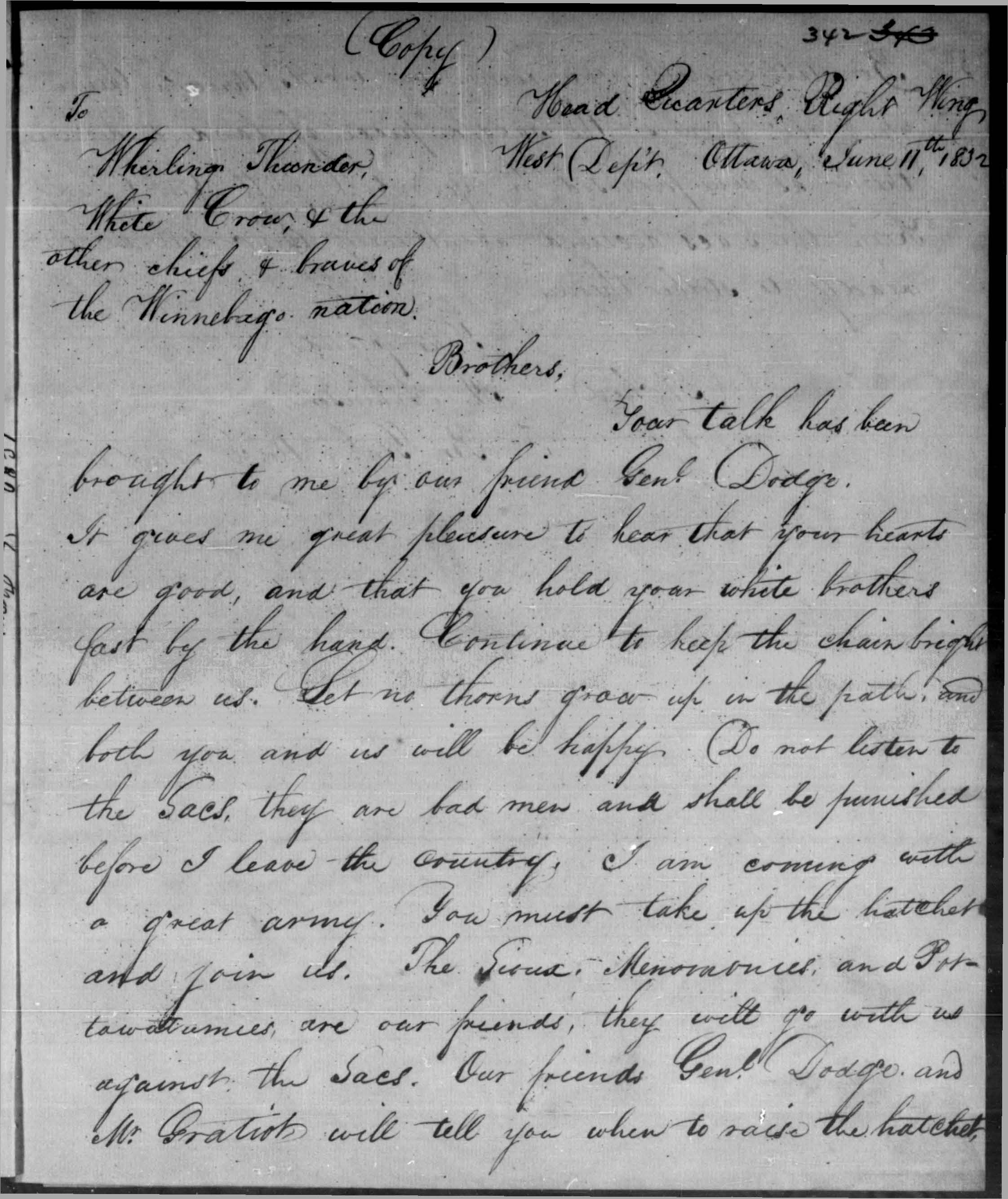
Be still until you receive my words, through them you may promise the Sacs [sic] a piece of land to deceive them as you proposed in your talk with Gen. Dodge. Keep the Sacs [sic] deceived about every thing till we are ready to strike them.
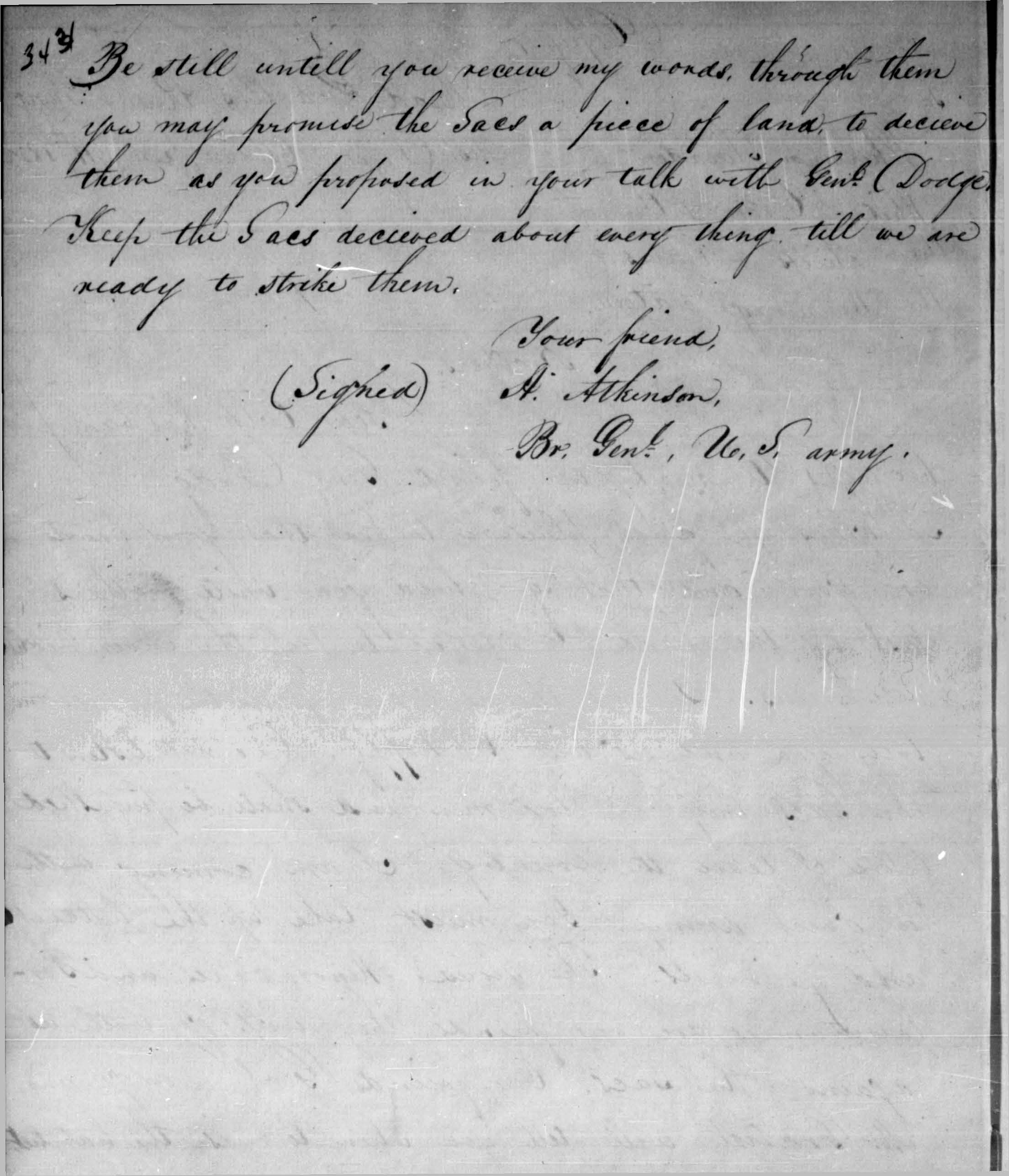
Henry Gratiot was employed in the recently created Rock River Subagency which was originally assigned to the St. Louis Superintendency before being transferred in 1832 to the Michigan Superintendency. His “journal of events and proceedings with the Rock River band of Winnebago” is a treasure trove of information. Included in it is the following entry from June 14:
On the Arrival of Gen. Dodge, he discharges the hostages, and at his request they and a white man Oliver Emmell are employed as spies to ascertain the position, strength, etc. of the enemy. I gave them five horses, five guns, and other presents as a fortification for the detention and to ensure their fidelity for the future.
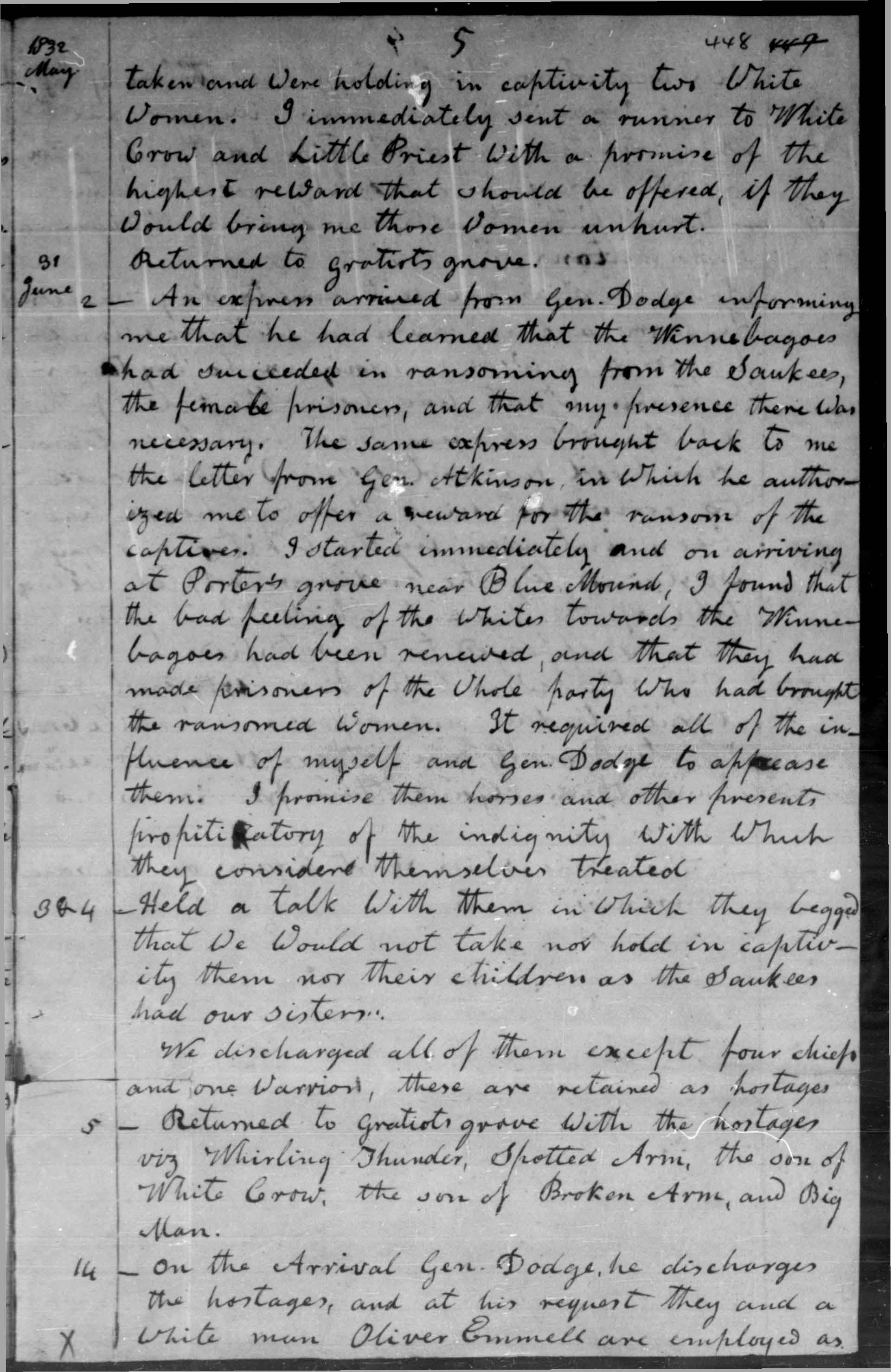
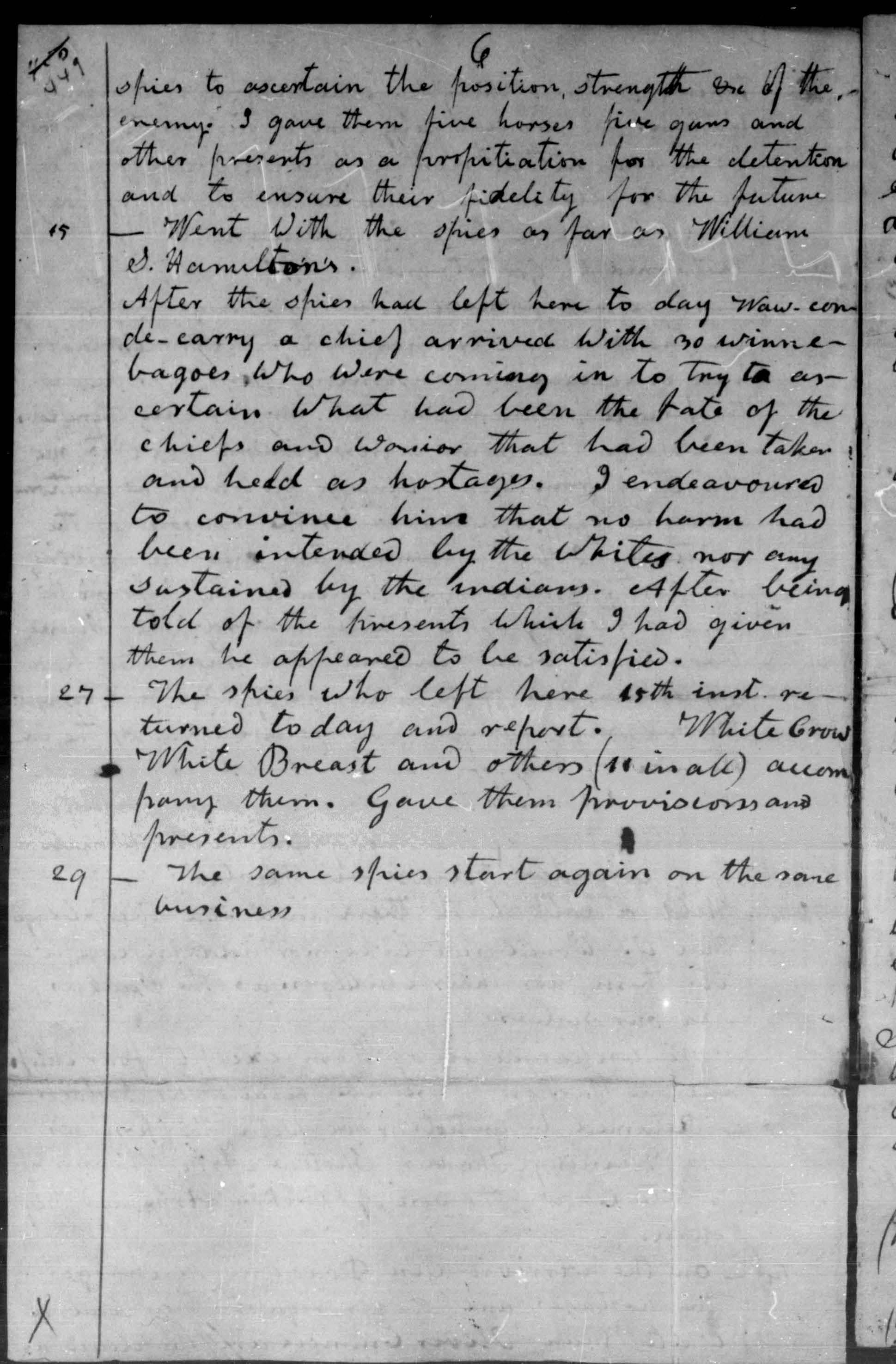
Whether it was the horses, guns, or other presents is not clear, but Emmell’s allegiance to the cause is, as he portrays it, unambiguous. In the “Report of Oliver Emmell, who with five indians [sic] was employed by Henry Gratiot sub Ind. Agent, on the 14 inst. at the request of Gen. Dodge, to go and ascertain the position, strength &c of the hostile indians” he writes:
On the third day after leaving Col. Hamilton’s we arrived at Mud Lake and there in a swamp we found a large encampment of Winnebegoes [sic], who had fled there, they said, because they had been told that the whites had seized their chiefs and were intending to make war on their nation!
Their women and children are in a state of starvation living on grass and roots. Whirling Thunder and I satisfied them that they had nothing to fear from the Americans unless they should provoke it by some act of hostility. I remained one day with them and I sent the son of Whirling Thunder into the Potawatamy [sic] country to see what they were doing. His report is favorable.
One day we met a man who asked the indians [sic] why they had this man (me) with them. They replied “he is a Frenchman who has married among us and is as one of us”. He replied that French, English, and Americans all smell alike, and we will kill him for we have determined that all who wear hats shall be treated as enemies. This threat, I have no doubt, would have been carried into execution had it no [i.e., not] been for the interference of White Crow. Same day two Saukes [sic] came to the tent where I was and at night stole my horse.
Next day the Winnebagoes [sic], fearing that the Saukes [sic] would certainly kill me, took my clothes from me, painted me like themselves and sent me and one indian [sic] forward as hunters. While the others descended the river in canoes. We met Saukes [sic] three different times while I was in this disguise.
My fellow hunter would stop and engage their attention till I could get off.
I was frequently in sight of the camps of the Saukes [sic] which extend from Lake Koshkenon [sic] along catfish river to its mouth, a distance of six or seven miles. I counted eighty tents.
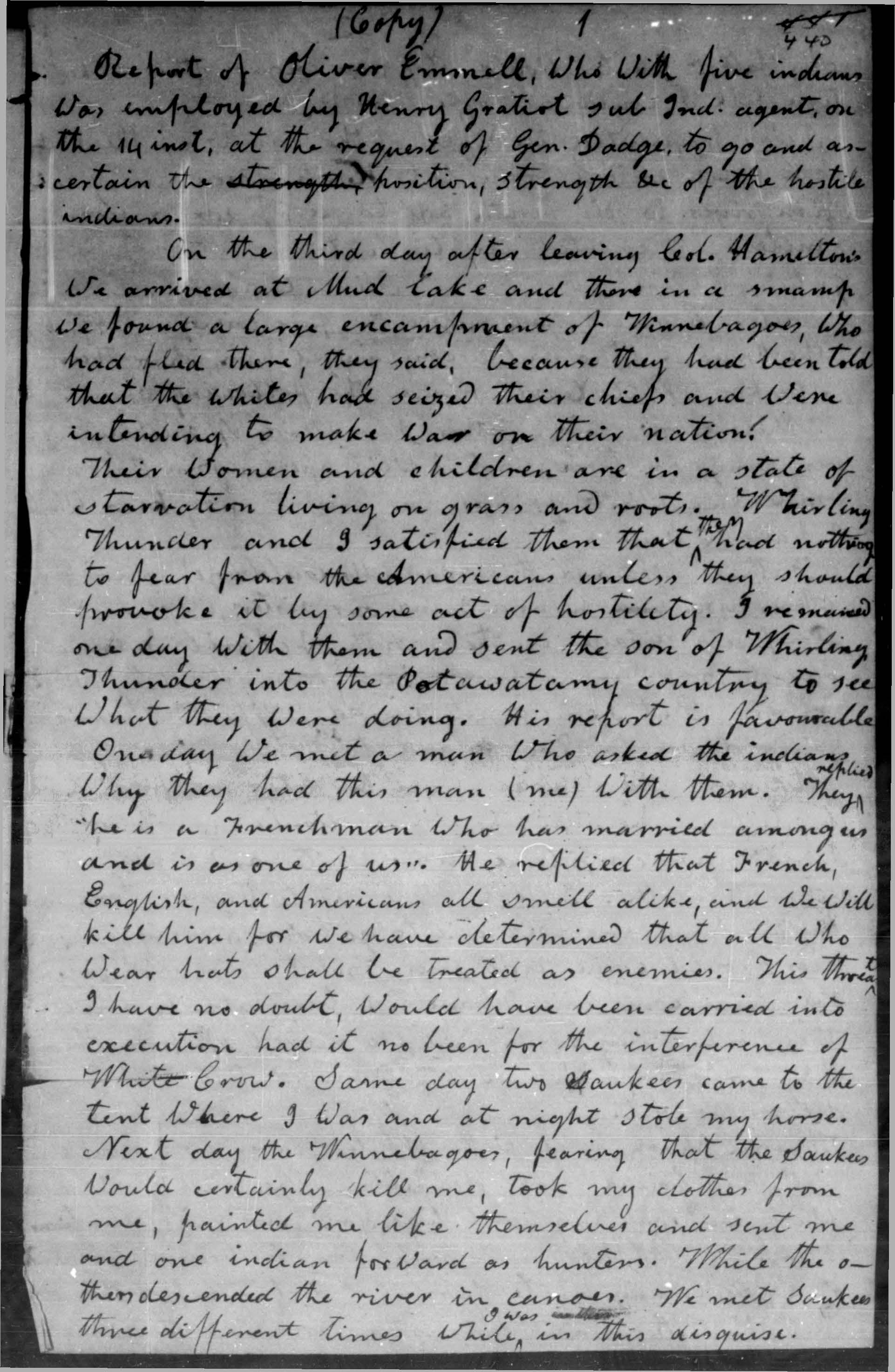
Gratiot included Emmell’s report as well as his own journal of “events and proceedings” in a June 30 letter to Territorial Governor and Superintendent of the Michigan Superintendency George Bryan Porter. Gratiot writes of the unanticipated additional expenses his subagency has incurred due to the ongoing hostilities and of a lack of funds or instructions from Porter.
In my letter to you of the 10th of May I stated the probably expenses of this sub agency for the current quarter at $400. Viz: for provisions $50, for presents $100 and for contingencies $250.
But that estimate was not so large under either of the heads as the actual expenses have been.
The hostile Sauks [sic] having come immediately among the Winnebagoes [sic] it has required all of my influence and exertions to preserve peace between the whites and the Winnebagoes [sic]. Not that I believe that my band of indians [sic] are disposed to be hostile but the whites are so extremely suspicious of them that it is next to an impossibility to preserve peace. A reference to the Journal will show this.
Although I had no funds in hand, yet I found that to avoid increasing the number of our enemies, considerable expenses must be incurred. I have endeavoured to be economical in the expenditure, and have made no bill but such as the nature of the case seemed to demand imperiously.
Having no funds with which to pay accounts as I made them, I have not yet got all of the bills and therefore cannot state, precisely, what is the amount of expenses incurred but the following is with a few dollars of the amount viz: Provisions $310. Presents $675. Contingencies [$]650.
Having no funds in hand and having never received any instructions from you I am extremely embarrassed in every sense of the word.
What I have done I did under a firm conviction of its necessity and I hope that it will receive the sanction of the government.
I can not settle bills that I have made, because I have neither publick [sic] nor private funds with which to do it, consequently I cannot render an account at this time.
I hope to receive from you soon, a remittance or a draught [sic] on the bank of the U.S. at St. Louis, accompanied with such instructions as you may choose to give.
It is wholy [sic] out of my power to estimate the probably expenses of the sub agency for the next quarter. It may be as much or more than is required for the now past, or it may [be] much less. As they have been obliged to leave their cornfields on account of the presence of the Sauks [sic], they will not make any corn, consequently a considerable quantity of provisions will be required. Of the amount which will be necessary for presents and contingencies I can make no estimate.
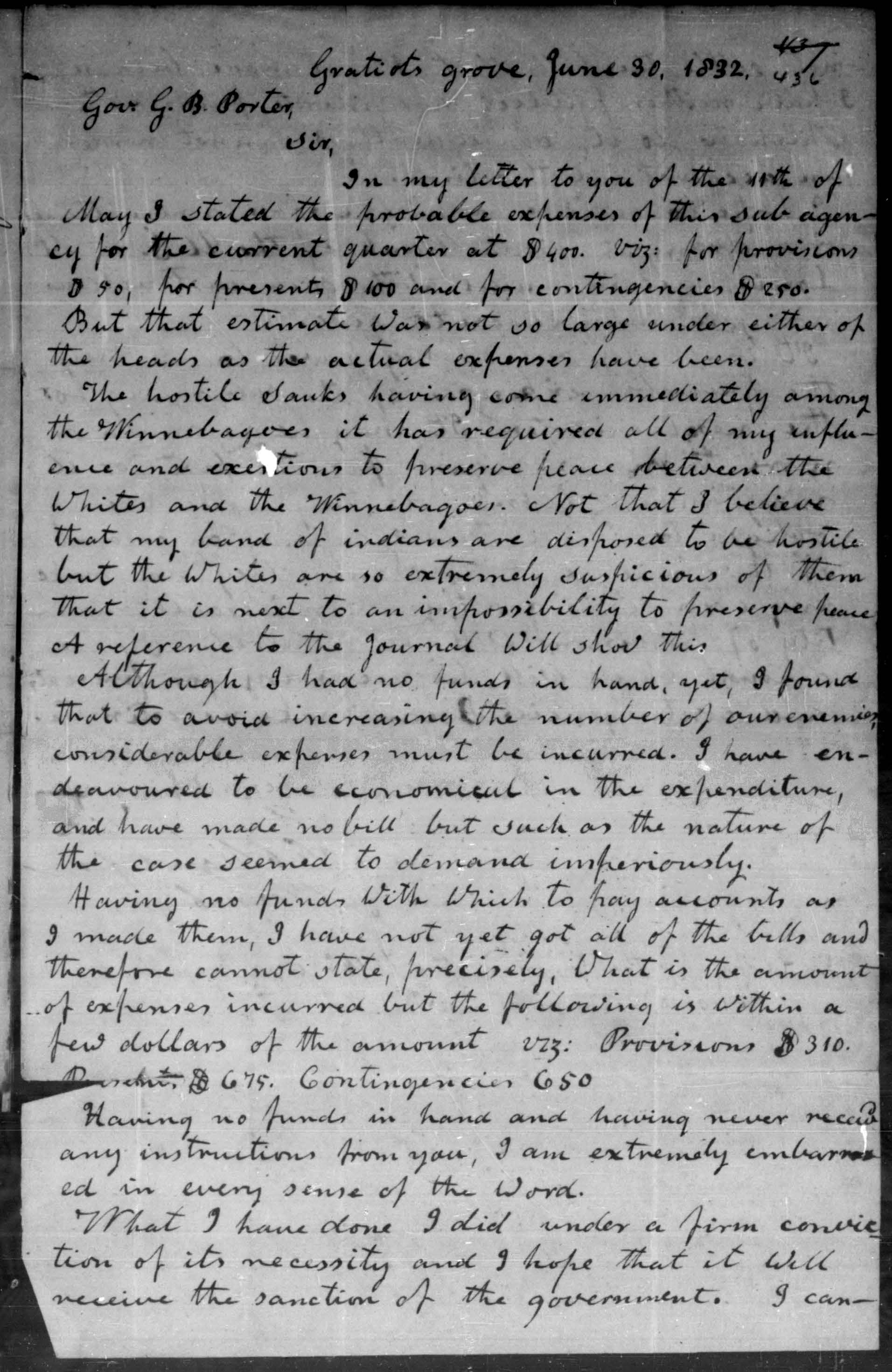
Also included in this release is an October 28 letter from Fort Winnebago Subagent John J. Kinzie to Porter in which Kinzie discusses actions being taken to satisfy stipulations of the Treaty with the Winnebago signed the previous month.
I have the honor to inform you that the White Crow and Little Priest, with other chiefs of the Winnebago nation, in compliance with the 9th art. Treaty of Fort Armstrong of the 15 ult., have, this day delivered to me, in the presence of Maj. Dodge of U.S. Rangers, and Capt. J. Plympton, Comg. officer at this place, seven individuals of their nation, as the murderers of U.S. citizens.
They have all been delivered to the Commanding officer, for confinement, until called for by the proper authority for trial. Two of the individuals named in the treaty have not yet been brought to me, but will be, in a few days, when I shall inform you of their delivery.
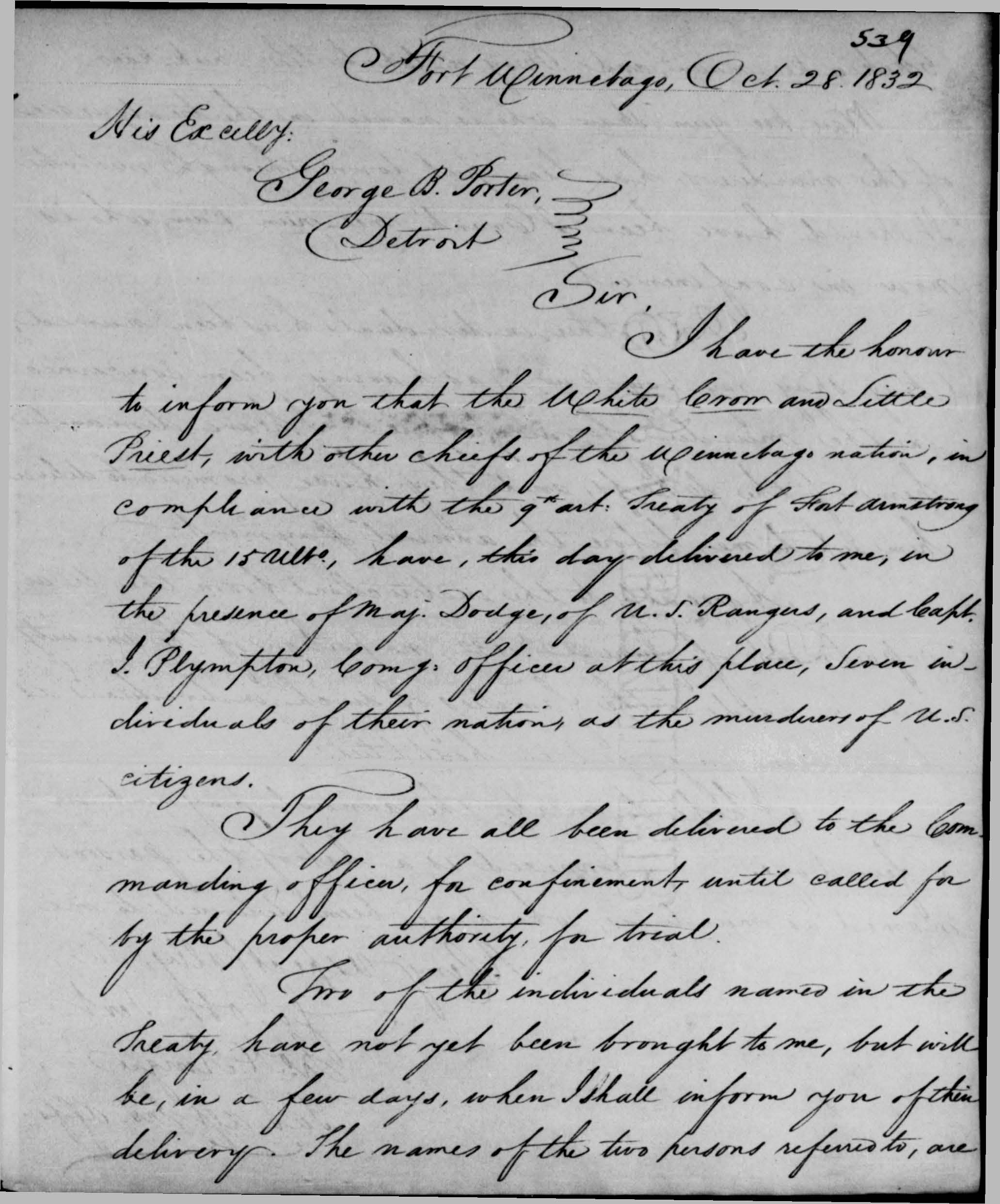
Appended to Kinzie’s letter is a list of people who have surrendered per the treaty.
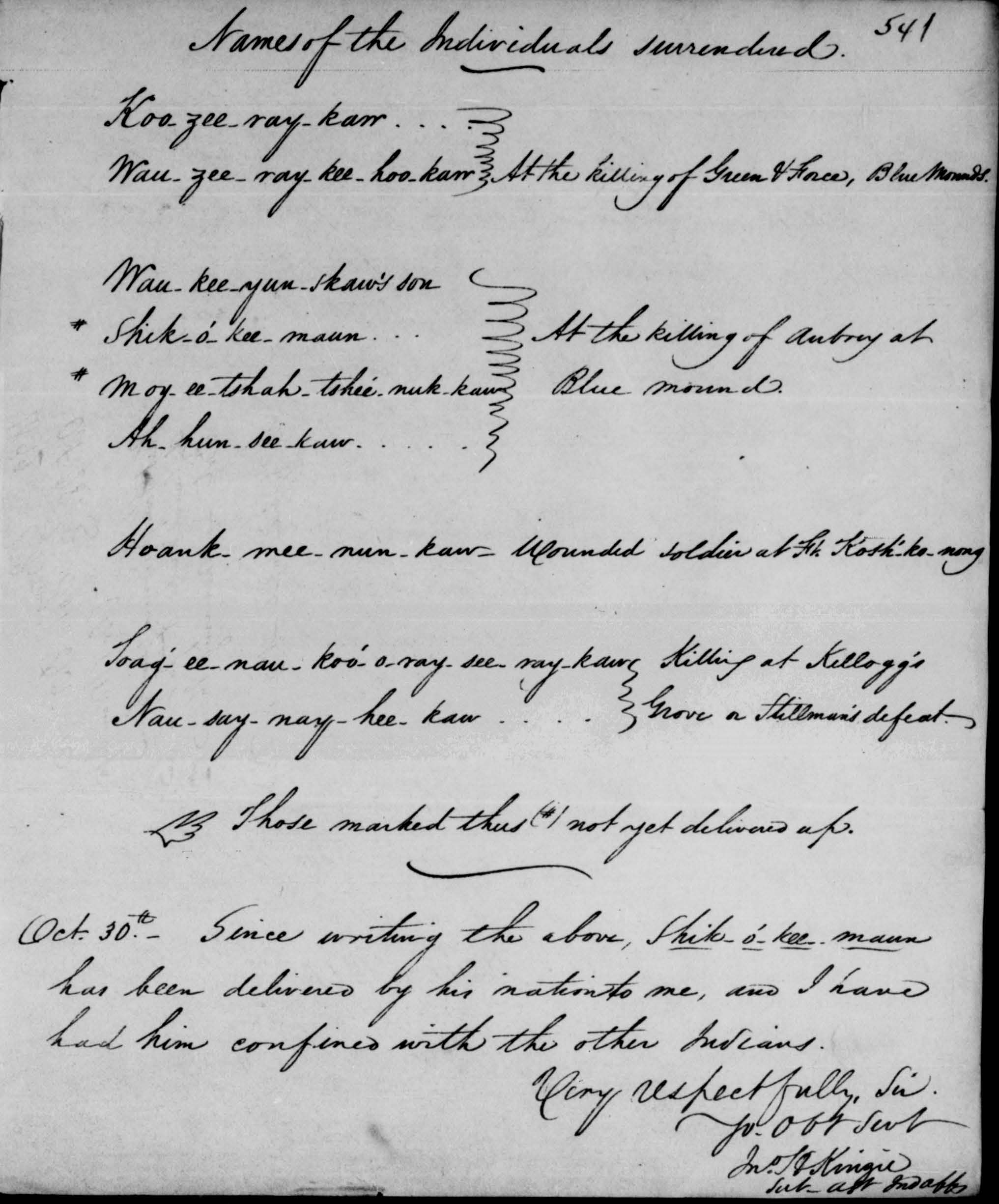
Visit the Readex Native American Studies page for information on this collection and more.
Request more information or schedule a complimentary trial.



